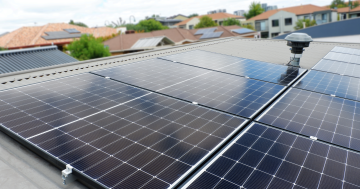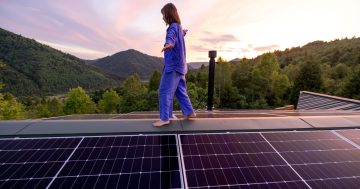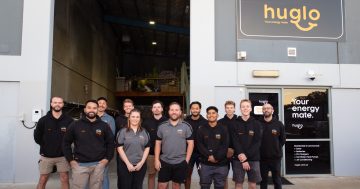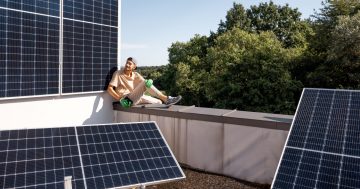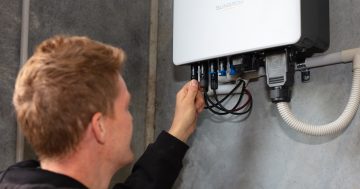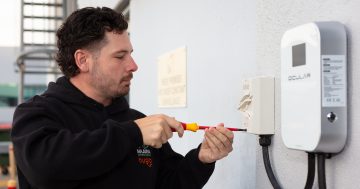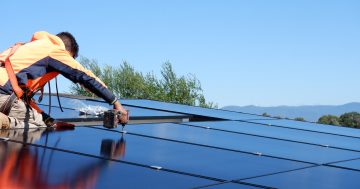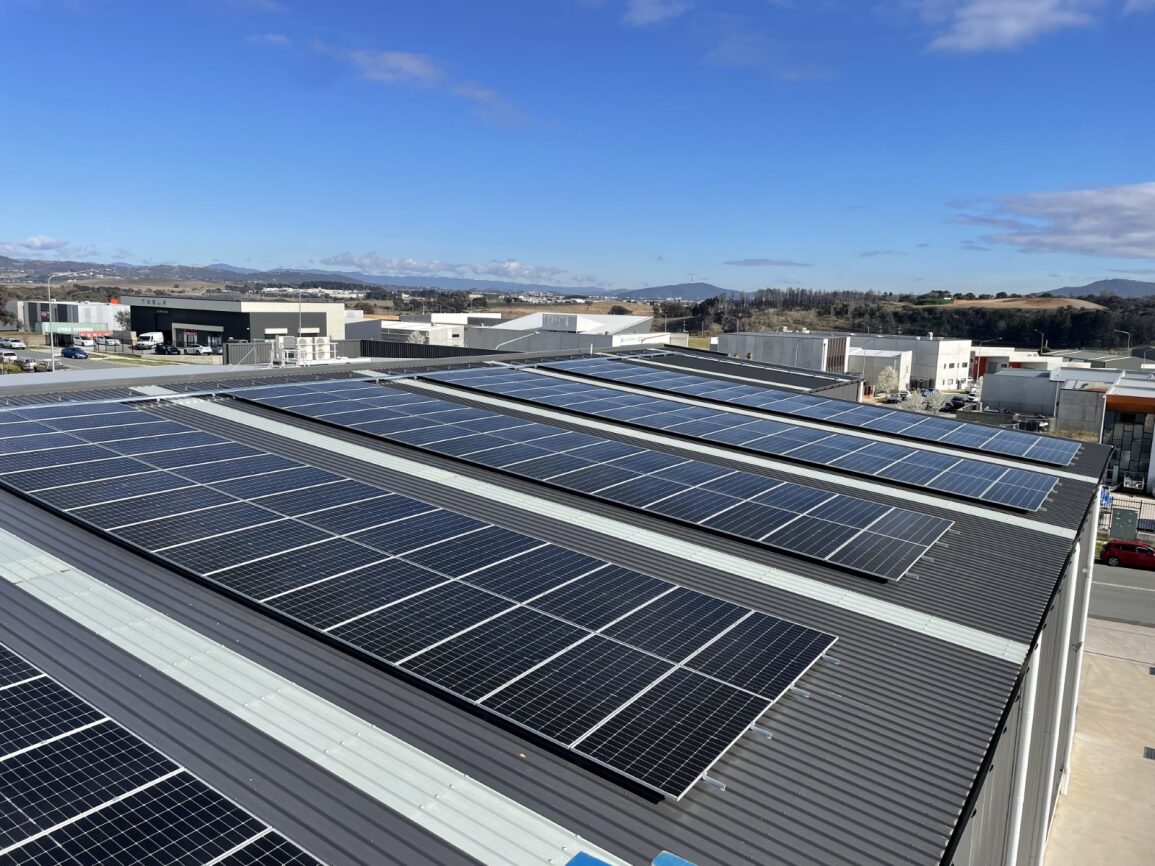
When you consider the lifespan of panels on commercial properties, the savings are jaw-dropping. Photo: Huglo Solar.
The case for solar systems on most properties is pretty airtight, but on commercial properties, solar panels very quickly return your investment by orders of magnitude.
One Canberra expert says that for the majority of commercial properties, it’s a no-brainer primarily due to high self-consumption rates that lead to “ridiculously good payback periods” that can easily save tens of thousands of dollars.
“The self-consumption rate is the single biggest factor influencing payback period, and a lot of commercial properties are naturally set up for excellent self-consumption rates just in their business-as-usual operations,” Huglo Solar director Lee Hindley says.
“For instance, if you have a big warehouse, you might operate from 7 am to 4 pm, which coincides nicely with sunlight hours. Warehouses can be quite power hungry, but sometimes 90 per cent of the power they require will be at the periods when they could be producing their own energy with solar panels.
“To compare, the average residential property has a self-consumption rate of about 30 per cent. People wake up, make breakfast and then pop off to work and come back at the end of the day, so they don’t have the option to take advantage of those peak production times.”
Of course, the self-consumption rates differ depending on the nature of the business. Factors such as energy requirements, usage times, the system they’re investing in, and any power storage solutions can all impact the payback period.
Huglo considers all of this when they provide self-consumption rate and payback period estimates for customers, and Lee says while it varies, the savings are nothing to scoff at.
“We recently did a design for a big warehouse property. We know when they clock in that they’re using ‘x’ amount over the day, and we know what time they shut down. At night, they might keep a few lights on, but the usage plummets. Based on that, we calculated a self-consumption rate of about 75 per cent,” he says.
“That business had a large power bill of about $50,000 per year, so the savings are tens of thousands of dollars once they have paid off the system.
“With a 100 kW system, that’s a payback period of about 2.5 to 3 years.”
When you consider the lifespan of panels for commercial properties, the savings become jaw-dropping.
Lee says lifespans boil down to warranties, which can sometimes differ between residential and commercial properties. Given the technology is the same, this is due to the increased projected wear usage of solar systems on commercial properties.
He counsels consideration of this when selecting your system but points out that overall, the economics work out well for commercial clients.
“We have a manufacturer with an excellent residential warranty of 30 years, and they apply the same to commercial properties. Others might have 25 for residential versus 15 for commercial,” he says.
“Regardless, the cost benefits always look better for commercial clients because even if you’re installing a 100 kW system, you’re still only installing one inverter. Commercial properties don’t generally have the size restrictions that residential properties do, so you can get a larger system, and therefore larger outputs, for the amount you invest.”
For more information, visit Huglo Solar.












